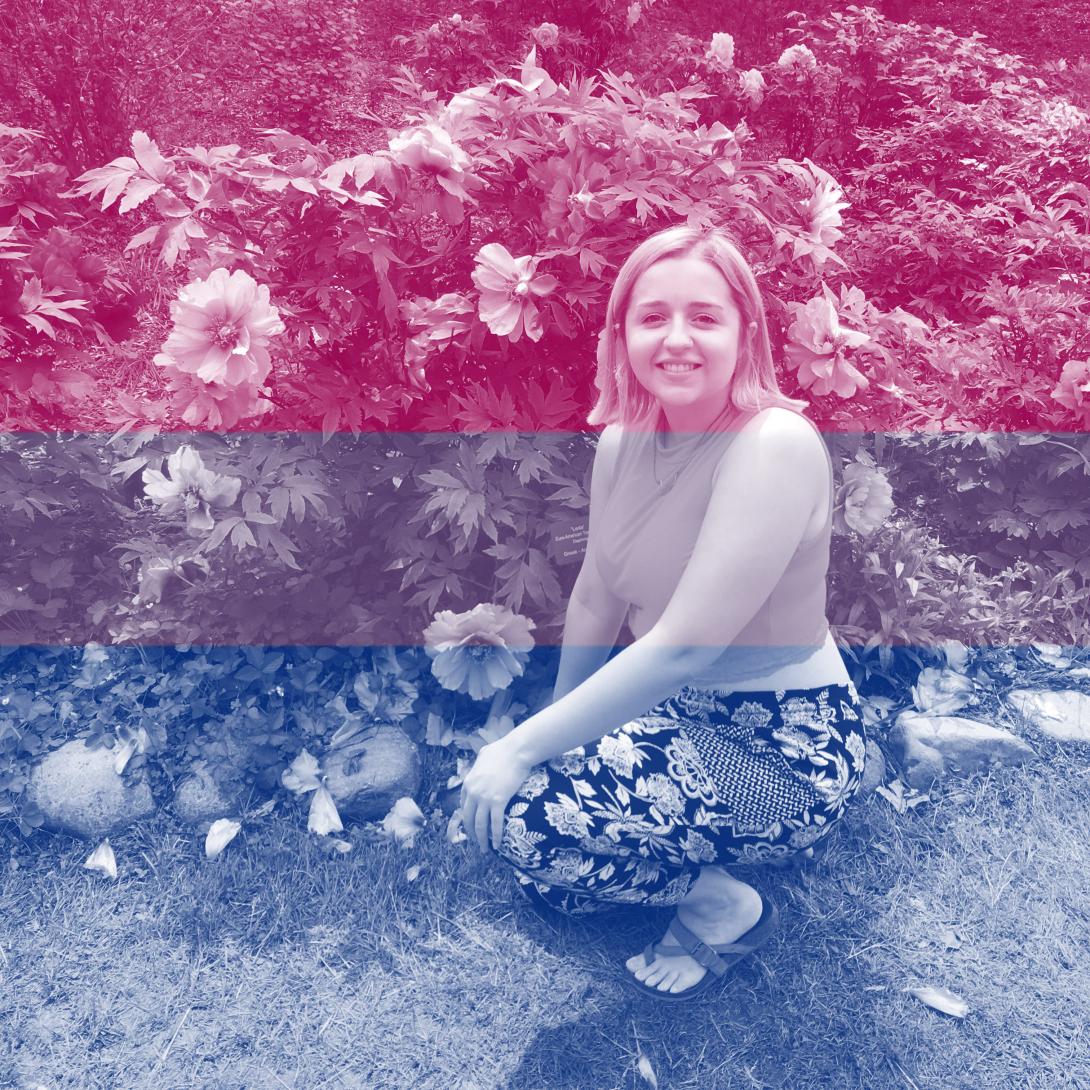August 28, 2019
By Hannah Brauer (she/her/hers), Photographer/Writer Student Lead
Eryka Swank (she/her/hers), U-M senior studying community and global public health with a minor in gender and health, is dedicated to elevating the voices and experiences of the LGBTQ community. When she stumbled across an internship with the Spectrum Center this summer, she jumped at the opportunity to be in an all-queer space. Now, she’s leading the LGBTQ Oral History Project with the objective of preserving stories on campus.
The Spectrum Center LGBTQ Oral History Project aims to train students to collect oral histories of alumni, faculty, and staff who identify as LGBTQ about their experiences at U-M. The project will be the third LGBTQ oral history project in the country, after Vassar College and Princeton University.
“We got the idea of Oral History because the director of Princeton’s LGBTQ center gave a presentation about their project,” said Swank. “...and made a point to interview and highlight more marginalized people, including queer, trans, and non-binary people of color.”
Swank is the student lead for the project and will supervise three students this academic year. The team is preparing two dozen interviews as part of the Spectrum Center’s 50th-anniversary celebration in 2021.
“We’re hoping that...it will be preserved in the Bentley [Historical] Library,” said Swank. “So, until the end of time, any student at the university can listen to someone else in the community talk about their experience and feel like they’re seen or heard in some way.”
Swank loves working for the Spectrum Center because of the queer spaces it gives her, which she didn’t have while growing up.
“[My coworkers and I] all have different experiences, but we share an identity. I think I pass as not in the community in my other spaces… so it’s been great for me personally.”
Swank is planning to participate in the Spectrum Center BiBQ for Bisexual Visibility Day on September 23. She expressed the importance of bi visibility in terms of both representation and validation.
“Growing up, I rarely saw bi people on TV. I barely even knew what it was,” she said. “And even when I realized that I was bi, I still had to identify it for myself and figure out what it means for me. That was hard because there was no model… you saw gay people and you saw straight people, and it was like ‘are you gay or straight?’ and you have to choose.”
Swank discussed bi erasure and how important it is for communities to support each other in their queerness.
“Even if you’re not in a queer relationship, or if you’re in a straight-passing relationship,” said Swank. “[You can] find those people who tell you that you’re not confused, you’re not selfish, you’re just who you are and that’s okay.”

